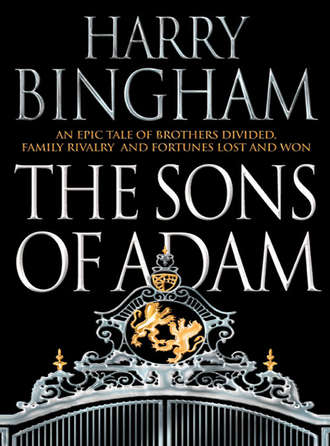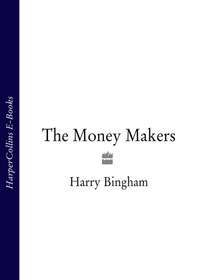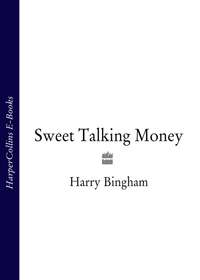
Полная версия
The Sons of Adam
‘Listen, old fellow,’ said Alan. ‘You and I have always been close. Closer to each other than to anyone else. Guy doesn’t get a look-in. But when all’s said and done, and whatever Guy did or didn’t do, I think –’
‘He did do it. I know he did.’
‘Well, even so, I could have spoken with him. It didn’t –’
‘And he’d have told you that the whole matter had nothing to do with him and you’d have believed him. You always do.’
They walked a few paces more in silence. Alan looked long and hard at some animal tracks. Hare. He could see fox tracks as well. If he listened carefully, he could hear the almost silent animals of the forest: the cautious footfalls of the deer, the quiet munching of the rabbits, the tapping of woodpeckers in the trees. He looked up.
‘Take care, brother,’ he said. ‘You play a dangerous game at times.’
Tom smiled brilliantly and gave an airy wave. ‘That’s what comes of being a gardener’s son. Nothing to lose.’
He was wrong, of course. And it wouldn’t be long before he knew it.
21
It was nine months later, 10 August 1916.
Alan and Tom were both alive, both intact. That was the good news.
Meanwhile, the war was continuing. The Battle of the Somme was in progress. In the last six weeks alone, a hundred thousand British soldiers had been killed or wounded. So far, Tom and Alan’s battalion had been kept out of the conflict, but that happy interval was about to end. The battalion was due to attack the very next day. The fighting would be as severe as anything the two men had ever experienced. Casualties were certain to be high. Perhaps colossal.
That was the bad news.
And, in a way, it was untrue to say that both men had survived intact. They hadn’t. They couldn’t. No man survives, life in the combat zone for very long. Nerves shred. Humanity frays. The spirit fails.
Of the two men, Alan had been worse affected. Devoted to his men, he often pushed himself too hard. Too serious to unwind easily, he found relaxation difficult. He smoked. He rode. He wrote letters home.
And he’d found a girl.
Called Lisette, she was pretty, dark-haired, smiling and kind. They’d met by accident one day in a village seven miles behind the lines, Ste Thérèse-sur-Tarne (‘Saint Tess’ to the men). He was billeted there. She was the daughter of one of the local farmers. Caught outside during a rainstorm, he helped her home. They ran into her farmhouse, shared some coffee, laughed together. She invited him back. And back. After three visits, he could take a hint. Excited and embarrassed in about equal measure, he undressed in her little bedroom. They made love. During the rest of the fortnight that Alan was in Saint Tess, they met on a further nine occasions, making love on eight of them.

The evening before the assault found the battalion sheltering in the wreck of what had once been a village. The officers’ mess was a ruined cellar, whose entrance was neatly flanked by two rows of shell cases, graduated in size, ranging up to the height of a man.
Tom was still Tom. He was handsome, brilliant, unmilitary, courageous. But over time, his outlook had blackened. He lounged against the cellar wall, barely protected by the sandbag parapet in front of him. He picked up a flint and threw it out beyond the sandbags.
‘A fine place to die,’ he commented.
‘For God’s sake!’
Alan jumped to find a piece of wood to ward off Tom’s unlucky words. A discarded crate lay nearby and Alan passed a chunk of it to Tom, who touched it absently. The side of the crate was marked in English: ‘Shell Motor Spirit’. Tom nodded at the marking and smiled.
‘Good choice.’
‘Let’s get out there right away, shall we?’ said Alan. ‘After the war, I mean. Not wait any longer.’ He meant get out to Persia, of course.
Tom laughed and shook his head.
‘What?’ said Alan defensively. ‘You can’t want to go back to Standard, can you? Lord knows, I couldn’t stand to be cooped up in somebody else’s office.’
Tom laughed again, kindly this time. ‘That’s not what I meant, old man. I meant … Look, you don’t think we’ll both survive this, do you?’ Tom spoke quietly, talking almost to himself. ‘But there are worse things, after all.’
‘Tom, for God’s sake!’
‘If I’m to die, I’ve decided to fight like a maniac first. Take a few Boche with me.’
‘Don’t speak like that. Don’t even think like that.’
Tom shrugged. ‘I haven’t always thought like that. This whole damned war is so stupid, I couldn’t see much purpose in trying to fight it hard. I still can’t, in a way, except that one has one’s self-respect to think of.’ He flicked his white and purple medal ribbon thoughtfully, then his tone changed again. ‘If I am killed, will you promise to do what you can in Persia?’
‘Of course.’
‘Drill. If there’s oil, you’ll find it. If there isn’t – well, at least you’ll have tried.’
‘We’ll find it together.’
‘You’re probably right. Dead or alive, I’ll be there in spirit. But promise me, brother. Your most sacred promise.’
‘I promise.’
‘And don’t give the damn thing away to a bunch of stupid stockmarket investors. I mean, you’ll have to at some point. But not straight away. Find the oil first.’
‘The oil first, if humanly possible.’
Tom gravely nodded his acceptance. ‘Good. Good man.’
The way he said it, it sounded like goodbye.
22
The battalion moved off at eight that evening. Its goal: a full-frontal attack on enemy positions.
It was pitch-black and raining, and the ground was evil. Three times, artillery fire forced the company to flatten itself into whatever cover was available. Each time the shelling lifted, the company moved forwards again, leaving a small handful of wounded men behind. On one occasion, Alan was struck with a shell splinter, shaped like a goose quill, in his shoulder blade. An NCO lying in the ditch next to him tweaked it out with finger and thumb and threw it away. Neither man commented on the incident, or was even thinking about it five minutes later.
They reached their designated position shortly after midnight. The men ate rations from their packs and were given permission to rest until four.
The rain settled in and grew heavier. Time moved with agonising slowness.
At four o’clock, a thunder of British artillery opened up behind them, and they could hear the torrent of shells crashing down on German positions. The men listened in silence: half pleased at the thought of what the shells were doing to the enemy, half terrified because of what this implied for the coming offensive. Alan stayed with his men. Although Tom was close by, he might as well have been on another planet for all Alan knew of him.
Four thirty approached. The rain was beginning to fall more gently and a meagre grey light began testing its options on the eastern horizon. Alan’s eyes struggled to follow the luminous figures on his watch. The second hand swept remorselessly round. And finally, it was four thirty precisely. Alan raised his hand and dropped it: the signal to advance.
His men moved off. For several seconds, there was silence – beautiful silence. Then, almost simultaneously, three flares rose from the German-held salient. The flares disclosed what the German defenders already suspected. There was a trickle of rifle fire, then a din of machine guns, then the extraordinary violence of concentrated shelling. Air became metal. The noise was so indescribably loud that the sense of hearing fell away until it was almost like walking into silence.
Alan saw the men next to him hold their positions, just as they’d been drilled. No clustering together, no turning human lives into simple targets for German gunners. But the men walked as though into a gale. Bent over. Doubled up.
As he watched his men, he saw one of them struck full in the chest and sink to his knees with a soft ‘Ah!’ of release. Another man bent down, apparently to fiddle with his bootlaces, but he bent too far and slid to earth with dark red tongues of blood where his face should have been. All around, men were falling when they should be walking. Alan watched in mounting amazement and shock. His platoon was being destroyed, his beloved men massacred, soldierlike and courageous to the end.
Still they advanced.

Alan had no real recollection of the next few hours. Only by midday did the true situation unfold. The attack had largely failed. The attackers had bitten off a chunk of German line at huge cost. The two opposing artilleries screamed at each other. In the chaos of collapsed and broken trenches, both sides attempted to reconfigure their defences.
The day passed.
The list of known casualties was appalling. More than half of Alan’s men had been killed or wounded. So had all of his NCOs. So too with Major Fletcher, whose left arm had been torn off by a shell, and who had been found sitting upright in the mud, holding his arm between his knees, repeating endlessly, ‘My poor boys, my poor bloody boys …’
There was no word of Tom.
For two more nights and days the fighting continued. Alan was tired beyond tired, shattered beyond endurance. And then finally, he was given permission to rest.
The permission came in the form of a German Minenwerfer, which hurled through the air looking something like a flying dustbin, but a bin packed with enormous destructive power. The canister detonated twelve yards away on the unprotected side of the parapet. Afterwards, Alan thought he recalled seeing the flash of detonation before it reached him, but supposed he must have provided details of the explosion from his imagination.
And that was all.
The flash – then silence. No pain. No slow fade-out into unconsciousness. Simply a plunge into blackness. Total blackness.
And still no word of Tom.
23
Alan woke in a tent full of iron beds and soldiers. The atmosphere was foetid with the smell of hot air under canvas and the odours of blood, iodine and unwashed clothes. Men in the tent next to Alan and in other tents and huts beyond groaned and called out in their sleep.
Alan stretched himself gingerly. He felt indescribably sore. Although nothing felt broken or missing, Alan knew that wounded men were often unaware how badly wounded they were. He wriggled in his narrow cot, trying to get an arm down to reach his feet under their coarse army-issue blankets. He was so stiff that the effort made him pant. He finally managed it, however, and ran his hand over his toes. Nothing.
He sank back in bed, temporarily satisfied. The men in the ‘moribund ward’ often had red labels tied to their toes to indicate their status. There seemed nothing like that here.
He slept.
At dawn, he woke again, when a doctor, a major in the RAMC, was making his rounds.
‘Am I hurt?’ said Alan. His mouth worked awkwardly – even his jaw ached like hell – and the words came out as if spoken by a foreigner. The doctor reached for a pulse. The pressure of his thumb was painful and Alan felt as if he could feel the passage of blood up and down his arm.
‘Hurt? Yes, that’s why you’re here.’ The doctor kept his thumb on Alan’s wrist a few moments longer. ‘You were caught in a shell blast. Cuts and bruises everywhere, a few places that needed stitching. But that’s on the outside. We can’t always tell what’s happened inside. The blast can kill without puncturing the skin. You’re to stay in bed here for twenty-four hours at least. If there’s no sign of any problems by then, we’ll release you to one of the general hospitals. But I don’t want to see you in the line again. Is that clear?’
Alan nodded. He felt a wave of relief and the urge to giggle. He shoved his head into his pillow to muffle any sound, and the doctor and nurse left in silence, too busy to pry.
24
Two men from one of the New Army battalions of the Royal Scots escorted Alan to the hospital. Alan tried to thank them, but he couldn’t find the right words. He fell into bed and slept for six hours. When he woke, he ate, drank, then tried to sleep again.
He couldn’t.
His emotions were blocked, like a flood that has blocked its own path with a jam of fallen trunks, boulders and landslip. He was filled with an indescribable sense of loss. He thought about his beloved platoon, about Major Fletcher, about how nothing would ever be the same again. And he kept dreaming about Tom. He asked the nurses if they knew whether Lieutenant Creeley was alive, dead or wounded. They didn’t know.
For three days, he lay in hospital. As for his own well-being, it became clear that he wasn’t dying, that he wasn’t permanently crippled. The doctors advised plenty of rest and predicted complete recovery.
Alan wasn’t so sure. He’d never known himself to feel like this – or rather not to feel like this. He ate what he could (not much) and drank (a huge amount). He slept, fainted or dozed through sixteen hours in twenty-four. He could think clearly, or at any rate, he was able to answer correctly the questions put to him by the RAMC doctors: name, rank, place of birth, regiment. But his feelings were gone, both physical and emotional. He lay as if doused in an anaesthetic that reached all the way to his heart.
Then one morning, he woke up. For the first time, the images that swam around his consciousness resolved themselves into just two: Tom and Lisette. He had to know if Tom was dead or alive. He had to see Lisette.
He climbed out of bed, dressed, and went outside, falling four times and clutching at the walls of the hospital like a drunk. By chance, he found a transport captain he’d once had dealings with and was able to beg himself a ride to Saint Tess.
The village had changed. Lightly wounded men were everywhere. The Lincolnshires and London Irish, who’d been billeted there a few days before, had all gone now, either fighting or dead. There were new voices now: pink-faced boys from the Ox and Bucks Light Infantry and a company of fit-looking Canadians. A group of cows had broken into an apple orchard, and some of the Canadians were throwing the hard green apples at their flanks to try to cause a stampede.
Alan sat down in the village square. His body felt as though it had been dismantled and reassembled. A man in major’s uniform approached him: a good-looking officer with a drawn and tired expression. The major’s face lit up as he recognised Alan.
‘Alan, man! Thank God! What on earth … ?’
‘I’m sorry, sir,’ mumbled Alan. ‘Do I … ?’
‘Alan, it’s me. Guy. Your brother.’
‘Guy! Good God! You look …’
‘Are you all right, old man?’
‘Yes, perfectly, just a little muzzy. How do you do?’
‘Alan,’ you’ve been in hospital, have you? Did you take a knock?’
‘Something like that.’ Alan raised his hand and fluttered it down. ‘Wheeee-BANG!’
Guy looked his brother up and down, checking for signs of obvious injury. Apart from some violently coloured bruises, there was little enough.
‘Thank God you’re all right! I’ve been worried sick. Staff haven’t heard a straight word from anyone and all I knew was your crowd was in the thick of the whole bloody shemozzle. I got word that you’d been hit, but the RAMC weren’t able to tell me where you were, let alone how you were.’
The two brothers embraced. Later on, looking back on it, Alan was genuinely surprised by the warmth of Guy’s feeling.
‘And Tom? What about Tom? Where’s Tom? Don’t tell me –’
‘Alan, old chap, Tom’s absolutely fine. He made it up to German lines – unlike most of his men – and held on to his bit of trench despite a pretty nasty counterattack by Fritz. He was relieved three days ago, completely unhurt. He’s been going out of his mind trying to find out what happened to you.’
‘Thank God. Thank bloody Jesus. Thank … Thank … Thank … and he’s hurt, you say? How badly? How … ?’
‘No. Completely unhurt, I told you.’
Alan made a face, as though ready to argue. His breath came in hard pants that hurt his lungs.
‘Don’t you think you should still be lying down?’ said Guy. ‘Why the hell did the medics let you go anyway?’
‘The whole platoon went down? The poor bloody platoon!’ Alan was upset now. He began reciting the names of the men who’d been under Tom’s command.
‘Let’s get you home.’
‘Not hurt? Not wounded?’
‘Typical of the gardener’s boy, eh? No, completely unhurt. Not a scratch. Now come on back.’
Alan giggled in relief, but his emotions were still all over the place. He was laughing but could just as easily be crying. ‘Sounds like he’s the hero once again. You must have been pleased to see him. So pleased. Soooo pleased.’
‘Mmm,’ Guy agreed, without enthusiasm. Tom’s extraordinary record through four days of intense fighting had been somewhat muddied by a blazing row he’d had with one of the brigadier’s aides on the day of his return to the rear. Tom, incensed by the massacre he’d been in the middle of, had accused High Command of butchery. He’d more or less called Haig a murderer. It had taken Guy’s intervention to prevent Tom from getting into serious disciplinary trouble. ‘He can be a damn fool, that man. Now look, old chap, you’re looking awfully queer. Don’t you think you’d better –’
But Alan’s mood had become suddenly belligerent. ‘You’re the fool, a big bloody fool. And what’s worse, much worse, you’re a bloody staff officer fool.’
Guy’s voice tautened. He could see Alan was hardly himself, but it was dangerous territory that he was entering. ‘Alan, that’s enough –’
‘Bloody staff officers. Just as Tom says. Bloody, skulking, yellow, behind-the-lines, staff bloody –’
‘Stop it!’ Guy gripped his brother’s arm, attempting to swing him back round to the village. ‘I’m taking you home. You need some –’
‘No, I don’t.’ There was a roaring in his ears and a buzzy quality to his vision. He suddenly thought of Lisette, and wanted her with a passionate longing, rejoicing in the knowledge that if Tom was alive, then everything in the whole wide world would be all right. He pushed Guy away with both hands.
‘Don’t touch me. There’s someone I need to see … I have to go.’
Guy looked at his brother with sudden acuteness. ‘You’ve got a girl, have you? You?’
‘“I’ve got a little lady by the name of Sue,”’ sang Alan. ‘Not Sue actually, Lisette.’ He was babbling. He waved at the farmhouse where she lived. ‘Lisette, Lisette.’
‘That farm? The one just there, with the red-painted gables?’ Guy’s tone was half urgent, half incredulous.
‘That farm there.’
A delighted smile spread across Guy’s face. He released his grip so suddenly that Alan tottered and almost fell.
‘Go on then. Go.’
‘I’m going.’
‘Go to your precious Lisette. You’ll see just how precious she is. Her and your beloved twin.’
And Guy escorted Alan the two hundred yards to the farm. Before they were even halfway, Alan lost his desire to go there. He wanted to see Tom and he wanted to sleep. ‘Lisette will be there for me in the morning,’ he chanted.
But Guy’s determination was fixed. When Alan’s feet stumbled and dragged, Guy lifted him bodily, so anxious was he to get Alan to the farmhouse door. When Guy finally had Alan propped against the doorpost, he left him there, saying, ‘Go on, go in. I’m sure your arrival will be a delightful surprise. I’ll catch up with you later, old man. Toodle-oo.’
The farm door was never locked and Alan let himself in. The range was warm and a couple of cakes, yellow and creamy with egg, were cooling on the sideboard, a wire net over them. Lisette wasn’t there, probably out. Alan felt too happy to think. He was safe. Tom was safe. And nothing else in the whole world mattered.
There was some old coffee cooling in a pot. Alan drank it. The smell jerked at a memory. ‘Mind the bloody coffee’ – Major Fletcher – polished leather boots on a map-covered chest – loping monkey arms – ‘Keep your own bloody head from being shot off – then nothing: just a poor sod with his left arm loose between his knees and all his precious company lying dead about him.
Alan lifted the mesh from the cakes and stole a piece. It was good cake and he ate hungrily, before noticing that the cat was eating hungrily too. He chased the cat off and replaced the mesh. Upstairs, there was a sound: a creaking of floorboards and laughter. Of course! Idiot! Naturally, Lisette would still be upstairs. Why not? It was morning. What better place to be than bed?
Alan went upstairs, using his hands as well as his feet to avoid falling on the steep wooden staircase. The sound of laughter was louder now.
‘Lisette?’ Alan bounded along a corridor and burst through a door. ‘Lisette!’
The word died in his throat. There in bed lay not one person but two. Lisette and, next to her, naked and at home, was Tom.
25
There was a moment’s silence. All three people were shocked. In that tiny gap of time, nothing had yet been said, no damage done, no lives ruined.
The moment didn’t last.
Alan’s emotions looped again. An indescribable fury surged through him. ‘You bastard!’ he screamed. ‘You thieving, sodding, bloody bastard!’
Alan flung himself at Tom, fists flailing, blind with hot tears of rage. Tom defended himself. Although Alan was hitting with all his strength, he was exhausted and weak, and his lungs were rasping for breath. Tom slid from bed, grabbed his clothes and attempted to hide from the hail of blows. He didn’t fight back.
‘You bastard! You steal every fucking thing that matters to me! Lisette was all I had! All I wanted was Lisette.’
‘Alan, old chap – steady on – I didn’t know you were coming back.’
‘Alain, tais-toi, sois sage!’ cried Lisette, frightened and appealing for calm.
‘Everything that ever matters.’
‘Jesus, brother. There’s no need. You can have her. I didn’t –’
‘I don’t want to have her because you say I can. I don’t want …’ Alan’s attack was hardly serious now. Tom struggled to get his trousers on, keeping Alan at a distance with his stronger right arm. Lisette helped as well as she could.
‘Guy was out there, wasn’t he? Why in hell didn’t he keep you away? He knew I was here.’
‘Guy? He knew, oh yes, he knew. He carried me here. Carried me. So I would know who you were. And I know now, all right. I know.’
Tom was dressed from the waist down now and had his hands on his boots. ‘Take care, Alan, take care what you say.’
Alan steadied himself with his back against the chalky lime-washed wall. Although his face was purple with bruises, adrenaline had given him more control than he’d had with Guy. His extreme shock and nervous collapse was no longer obvious. It was easy for Tom to mistake him for a man upset, but otherwise in control of his faculties.
‘What I mean is,’ said Alan, speaking as distinctly as he was able, ‘that Guy has been right about you all along. You have some fine things about you, no doubt, but in the end you’re the sodding little gardener’s boy. Please get your hands off my girl and get out of here.’
‘Alan, for God’s sake, be careful. Some things can’t be unsaid, you know.’
‘Alan, s’il te plaît, calm down, I’ll make you coffee, I’ll explain.’ Lisette implored Alan for calm, but the situation had travelled too far.







